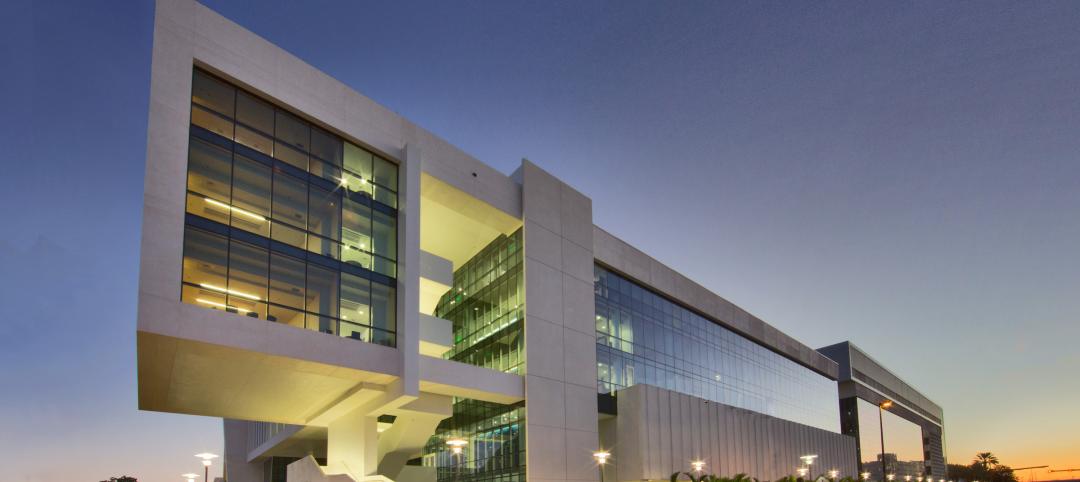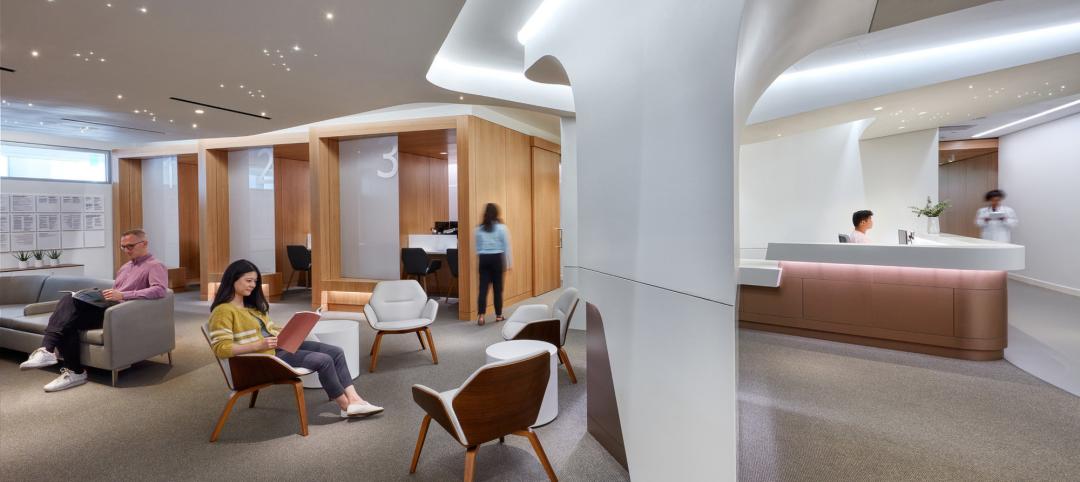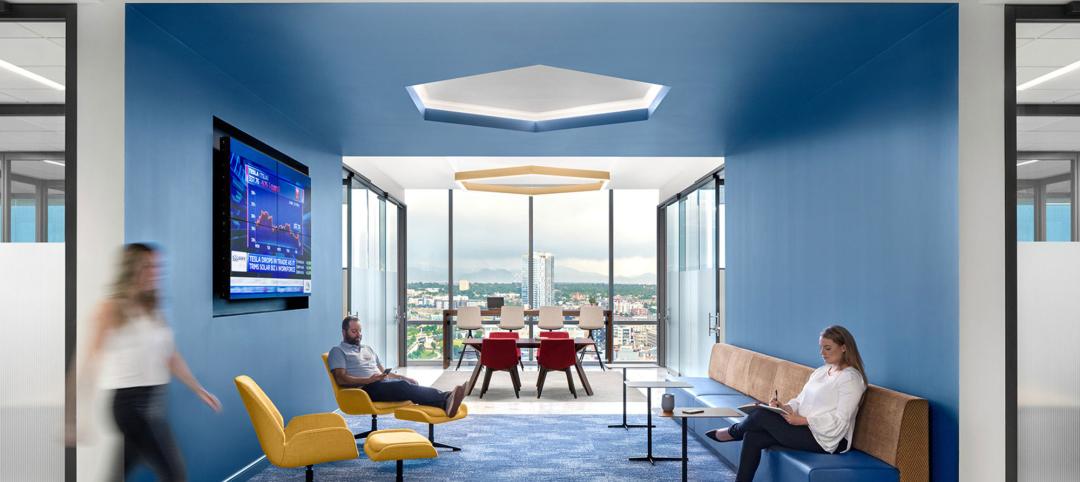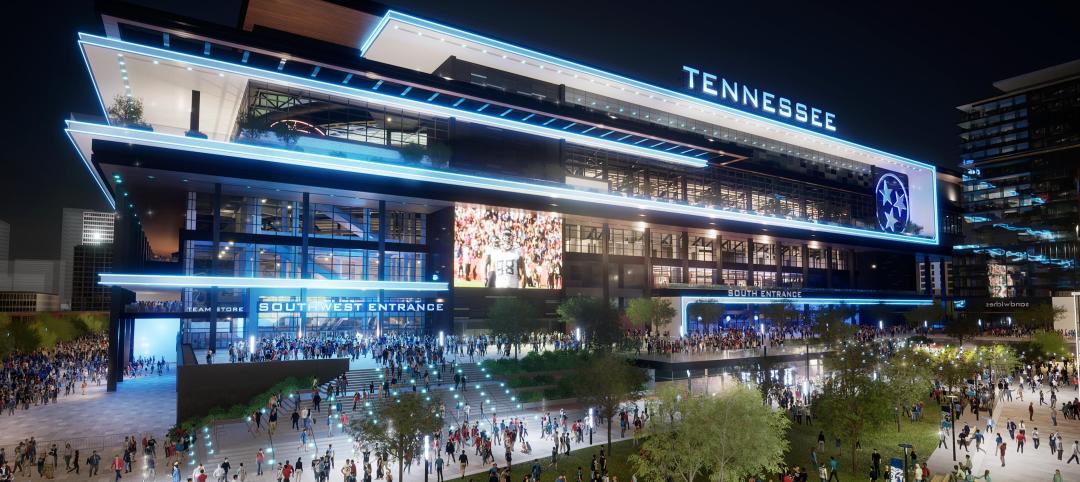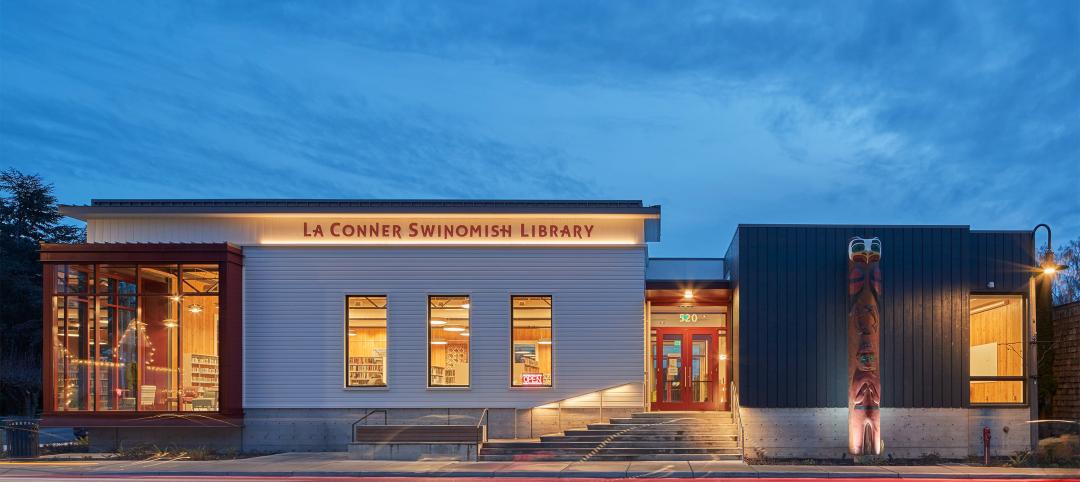The International Brotherhood of Electrical Workers and the National Electrical Contractors Association announced the grand opening of the Zero Net Energy Center (www.znecenter.org).
Located in San Leandro, Calif., the ZNE Center is the first commercial building retrofit designed to meet the U.S. Department of Energy’s requirements for a “zero net energy” building.
The 46,000-sf structure is an educational facility for 2,000 electrical workers that will participate in a program run by IBEW Local 595 and the Northern California Chapter of NECA. The ZNE Center officially opens its doors as the educational facility for over 2,000 apprentice and journey-level electricians in Alameda County and to serve as an industry-wide resource.
Courtesy Environmental Building Strategies (EBS). CLICK IMAGE TO ENLARGE.
“The building is a true game changer for our industry,” said Victor Uno, Business Manager for IBEW Local 595. “We are proud to push the envelope in the areas of energy conservation efforts, renewable energy promotion, job creation, work-force training and labor-management cooperation.”
Energy Efficiency and Renewable Energy
The ZNE Center exceeds the state of California’s 2030 energy efficiency effort by meeting the zero net goal 17 years in advance. It also exceeds the energy conservation goals of the Obama administration’s Better Buildings Challenge.
“We look forward to sharing how we utilized new technologies, advanced building designs, and innovative construction methods to achieve a dramatic and unprecedented 75% reduction in energy use when compared to similar existing commercial buildings in the country," said Don Campbell Executive Director of NECA’s Northern California Chapter. “This energy savings lowers the ZNE Center’s carbon footprint by 175 tons of CO2 per year, equal to the carbon emitted by 30 passenger vehicles annually as well as a savings of 500 barrels of oil each year.”
The ZNE Center exemplifies the importance of deep and early collaboration of the entire design and construction team. Under the leadership of IBEW/NECA, the team included Environmental Building Strategies (EBS), NOVO Construction, FCGA Architects, Belden Consulting Engineers, Red Top Electric, ACCO Mechanical, and Cubed Energy Solutions.
Project overview and sustainability stats
· The ZNE Center is the new home of the IBEW Local 595 and the Northern California Chapter of NECA Joint Apprenticeship and Training Committee program, where apprentices will train on the renewable energy and passive design systems incorporated into the building.
· Their goal is to make the ZNE Center the hallmark of energy efficiency and training for the construction industry nation-wide, incorporating a vision for a more sustainable world where young men and women will be trained for good paying jobs and careers in the electrical industry.
· The 46,000-sf building is the first retrofit of an existing commercial building for education and training that meets the U.S. Department of Energy standards for a “zero net energy” building. It exceeds California’s 2030 zero net energy goal 17 years in advance, and also exceeds the goals of Obama’s Better Buildings Challenge.
· 50% lighting energy reduction through daylighting, occupancy sensors, LEDs, solar tubes and more
· 80% HVAC energy reduction
· 90% computer energy reduction by upgrading equipment to Energy Star certified
· 75% reduction in energy use compared to similar U.S. buildings, and 29% energy use reduction compared to new commercial construction in California.
Related Stories
Engineers | Sep 8, 2023
Secrets of a structural engineer
Walter P Moore's Scott Martin, PE, LEED AP, DBIA, offers tips and takeaways for young—and veteran—structural engineers in the AEC industry.
Healthcare Facilities | Sep 8, 2023
Modern healthcare interiors: Healing and care from the outside in
CO Architects shares design tips for healthcare interiors, from front desk to patient rooms.
Designers | Sep 5, 2023
Optimizing interior design for human health
Page Southerland Page demonstrates how interior design influences our mood, mental health, and physical comfort.
K-12 Schools | Sep 5, 2023
CHPS launches program to develop best practices for K-12 school modernizations
The non-profit Collaborative for High Performance Schools (CHPS) recently launched an effort to develop industry-backed best practices for school modernization projects. The Minor Renovations Program aims to fill a void of guiding criteria for school districts to use to ensure improvements meet a high-performance threshold.
Market Data | Sep 5, 2023
Nonresidential construction spending increased 0.1% in July 2023
National nonresidential construction spending grew 0.1% in July, according to an Associated Builders and Contractors analysis of data published today by the U.S. Census Bureau. On a seasonally adjusted annualized basis, nonresidential spending totaled $1.08 trillion and is up 16.5% year over year.
Sports and Recreational Facilities | Sep 1, 2023
New Tennessee Titans stadium conceived to maximize types of events that can be hosted
The new Tennessee Titans stadium was conceived to maximize the number and type of events that the facility can host. In addition to serving as the home of the NFL’s Titans, the facility will be a venue for numerous other sporting, entertainment, and civic events. The 1.7-million sf, 60,000-seat, fully enclosed stadium will be built on the east side of the current stadium campus.
Mass Timber | Sep 1, 2023
Community-driven library project brings CLT to La Conner, Wash.
The project, designed by Seattle-based architecture firm BuildingWork, was conceived with the history and culture of the local Swinomish Indian Tribal Community in mind.
Office Buildings | Aug 31, 2023
About 11% of U.S. office buildings could be suitable for green office-to-residential conversions
A National Bureau of Economic Research working paper from researchers at New York University and Columbia Business School indicates that about 11% of U.S. office buildings may be suitable for conversion to green multifamily properties.
Adaptive Reuse | Aug 31, 2023
New York City creates team to accelerate office-to-residential conversions
New York City has a new Office Conversion Accelerator Team that provides a single point of contact within city government to help speed adaptive reuse projects. Projects that create 50 or more housing units from office buildings are eligible for this new program.
Codes and Standards | Aug 31, 2023
Community-led effort aims to prevent flooding in Chicago metro region
RainReady Calumet Corridor project favors solutions that use natural and low-impact projects such as rain gardens, bioswales, natural detention basins, green alleys, and permeable pavers, to reduce the risk of damaging floods.





